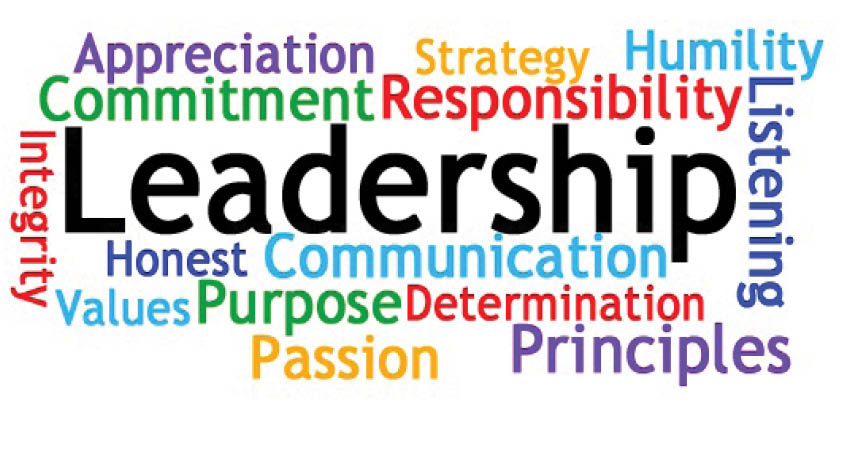There are several problems facing the Parsi community today – religious, social, political and economic. One could say the community is faced with first-class problems and second-class leadership. The question is, are we condemned to it or can we upgrade it?
Let’s face some home truths first… As a community, we have many generals and very few soldiers. There are any number of such generals who are adept at preparing and publicly orchestrating grandiose programs and schemes, with little, or no end results. These are generals who often use community service as a platform for social mobility.
Then there are generals who seem to know everything but do nothing! There are also those who adopt the dog-in-the-manger policy. Assuming there is a good program or project, they are the first to find faults and loopholes in it. Of course, constructive criticism is healthy. However, to pick holes in a good program or project and not offer an alternative or solution leads to stagnation. Then, there are also the opportunists – the type who like to make hay while the sun shines.

The common thread that binds these generals together is their larger-than-life ego. It reminds us of the story of two lunatics crossing each other on a narrow bridge:
Said the first lunatic, “Make way for me, for I am the great General Napoleon!”
“How do you know you are Napoleon?” asked the second.
“God made me that way,” said the first.
“Non-sense!” said the second. “I have done no such thing!!”
But seriously, what are the qualities that make a good leader? In my humble opinion, the prime requirements are knowledge, wisdom, competence and a sense of fair-play and justice. Having a sense of humour would be a bonus. I think sometimes, our leaders take themselves way too seriously. Parsis are known for their self-deprecating humour. Unfortunately, we see little of this among our leaders who seem to be keener on deprecating each other!
Our leaders are often guided by group politics or loyalty to the ideology of the group that may have placed the leader in position of power. A good leader should not let others play with his sense of natural justice and fair play. Moral courage and absolute integrity is the hallmark of true leadership. A true leader is one who would speak his mind and have the courage of his convictions, even in the midst of stiff opposition.
A good leader means what he says, says what he means and more importantly, does what he says. Popular slogans and pious platitudes do not a leader make. A true leader is one who is willing to do things – get his hands dirty, as they say.

Let’s face it – the traditional leaders of the community, which include our clergy and trustees of leading community institutions, have collectively failed the community. The question is, should we accept this situation and lament, or should we get a hold of the situation and turn it around for our common good? Agreed, our leadership has failed at the macro or institutional level. But have we explored our potential leadership at a micro or individual level?
As individuals, one may not be able to influence the whole community. However, one could start by inculcating basic Zoroastrian values at home, gradually spreading the same in our neighbourhood and workplace. Each one could take on the role of a Rathaeshtar (spiritual warrior), waging a daily battle against the forces of moral, spiritual, social or economic imbalances.
‘Righteousness’, ‘goodness’ and the spirit of ‘giving’ and ‘service’ is latent in everybody’s heart. As good Zoroastrians, it is our duty to arouse, awaken or strengthen it in as many hearts as we can. If good people decide to lead, people will be there to follow them. They are like a flicker that tears off the thickness of darkness.
We often talk about our dwindling numbers. But how many of us consider marriage and raising a family as important? As Shakespeare would have said, “The fault, dear Brutus, is not in our stars but in ourselves that we are underlings…..”
Get involved personally, no matter how small and seemingly insignificant your contribution. Forget the traditional leaders. You be the leader of your own destiny and that of your community. Let us, as a community, endeavour to build and work only on our strengths and try to ignore our weaknesses for it is only our strengths that can give us the energy to correct our weaknesses.
Please reduce your dependency on our community institutions and re-discover the joy and satisfaction of achieving things on our own steam. What comes to us by way of charity or inheritance, often follows the age-old trend of ‘easy come, easy go’. Let us know the value of what we have by struggling to gain or earn it. Unfortunately, many within the community consider housing and charity as their entitlement!
Remain open to social and economic changes, but not at the cost of our values, ethos, culture or identity. As Mahatma Gandhi has said, “You must open the windows of your mind, but you must not be swept off your feet by the breeze.”
Let us endeavour to become more tolerant. Let us accept the fact that the very best among us holds either traditional or liberal views on matters of religion. If a fellow Parsi Zoroastrian is either a traditional or liberal by conviction or on account of his/her upbringing, let us respect that individual’s right to his/her opinions.
Let us learn to respond to all issues, social economic or religious with proper evaluation and a calm mind instead of reacting impulsively and without adequate thinking.
Let us attempt to build on individual excellence at a community level instead of building institutions and organizations for personal aggrandizement.
Let us attempt to stimulate our youth, rather than browbeat them and help them to use all their abilities and experiences at optimum level.
Let us harness our energy in fighting for the cause and not against each other. And, please, for Ahura Mazda’s sake, let us not make a mockery of ourselves in the national newspapers!
Let us remain positive and resolute, no matter what the circumstances and situations we may be surrounded with. Remember that you finally come to believe anything you tell yourself often enough – even if it is not true.
- Celebrating The Interplay Of Life And Fire! - 20 April2024
- Customs To Observe At Atash Behram Or Agyari - 13 April2024
- A Shower Of Spring Festivals - 6 April2024

A true master piece